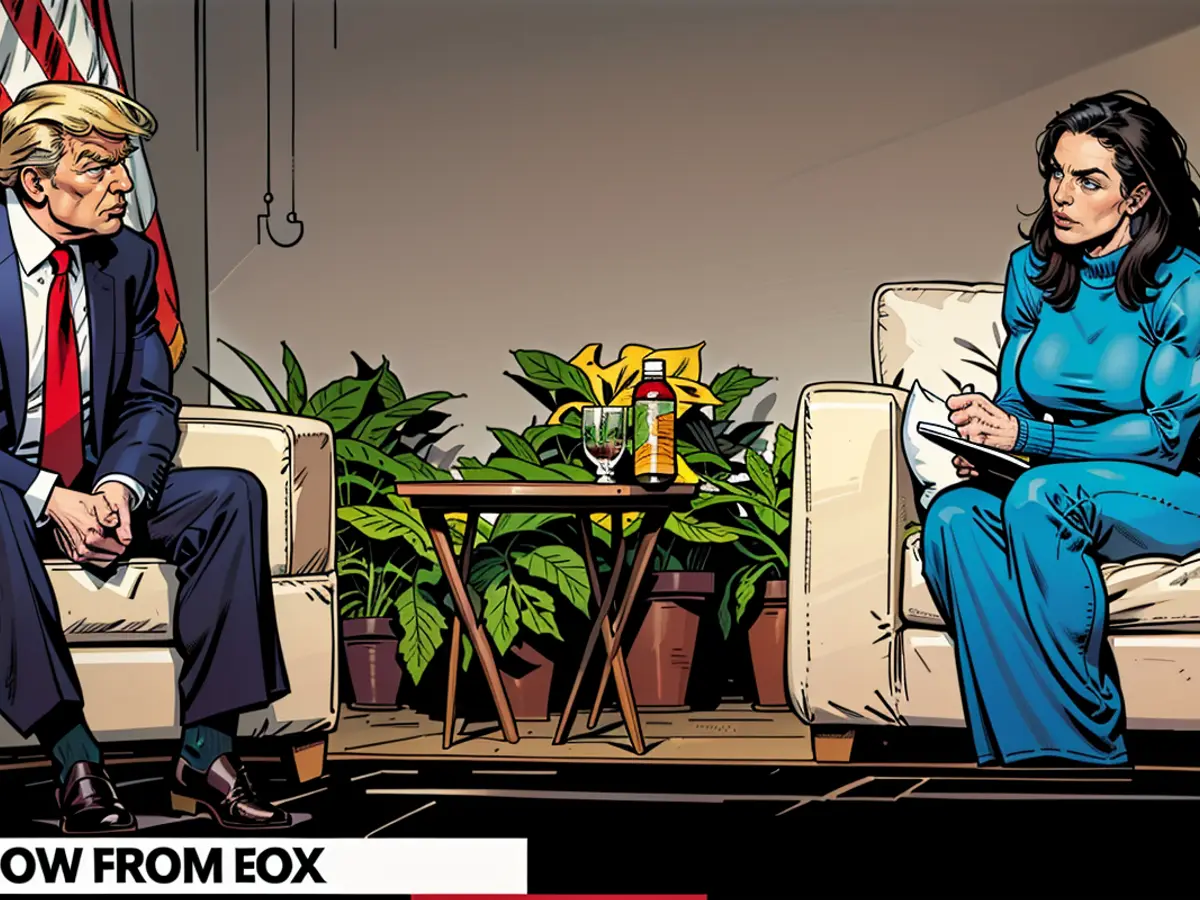- Donald Trump's uncomfortable 35 minutes in front of black journalists
The roundtable discussion at the National Association of Black Journalists in the Chicago Hilton Hotel was never intended to be a harmonious lovefest, but if Trump had hoped to win over some African American hearts here, he certainly blew it.
The reception was far from warm, but he could have shown a bit more composure. After all, he was once president of the USA. But then again, this is Donald Trump.
"First of all," Donald Trump began, "I've never been questioned in such a terrible way. Not even a 'Hello, how are you?' " he complained, to the audience's murmuring laughter. Words like "fake news", "shame", "hostile start" followed, setting the tone for the next 30 minutes.
Donald Trump complains about absent Kamala Harris
After just four minutes on stage with the three moderators, the Republican nominee complains about the delayed start of the event and the absence of his opponent. "It was agreed that Joe Biden should also be here. Or Kamala Harris. I came under false pretenses," said Donald Trump, before stating that he had been the "best president for blacks since Abraham Lincoln".
This claim is not new, but no less audacious. Lincoln led a bloody war against the seceding Southern states over slavery and abolished it in 1865. The 16th president was assassinated and is one of the most revered U.S. leaders. Comparing himself to him is at least daring, and the audience reacted accordingly.
Is she Indian "or" is she black?
But Trump, who often makes questionable statements about origin and skin color, then digs himself into a hole.
When asked if Kamala Harris, the U.S. Vice President and the Democratic Party's designated presidential candidate, was only in office because of her Jamaican-Indian parents, he responds: "She has always been of Indian descent and has only played up her Indian heritage. I didn't know she was black until she suddenly became black a few years ago. And now she wants to be known as black. I don't know: Is she Indian or is she black? Someone should look into that."
Statements about ethnic origin are already a sensitive topic in the USA. It only gets worse when someone questions another person's roots or, as in this case, a white man tells a non-white woman what her identity is. The backlash began quickly. The White House reacted angrily, and Harris herself spoke to a black audience in Houston, calling it "the same old show: division and disrespect".
What exactly are "black jobs"?
On stage in Chicago, Trump uses every opportunity to recite his campaign themes, including "illegal immigration". In his usual detested tone, he says, "they (the immigrants) are standing at our border in the millions to take black jobs". When asked what "black jobs" are, he stumbles: "Anyone who has a job." But everyone in the room knows what "black jobs" really means: menial and auxiliary jobs, work for the underqualified, often taken by immigrants. Or in the world of right-wing populists like Trump: by African Americans.
In the 35 minutes, the former U.S. president rattles off his usual and long-disproven lies and exaggerations.
- Roughly his classics on the migrant "invasion": "Probably 15, 16, 17 million people. I even think there are more." (Experts estimate the number at a maximum of ten million, ed.)
- "At this moment, illegals are coming into our country, many are prisoners or were in psychiatry, and they come to vote." (Neither are particularly many convicted nor mentally ill people migrating to the USA, nor are they voting for the Democrats as Trump suggests, ed.)
- "Inflation is the worst since 100 years. The fact-checkers probably say only since 58 years, whatever."
- "We have more liquid gold, gas, and oil under our feet than any other country. More than Saudi Arabia, more than Russia." (The USA is ranked ninth in global oil reserves, behind Saudi Arabia and Russia, and fourth in gas reserves, ed.)
Meandering, half-baked, and discriminatory campaign phrases are one thing. When it came to specifics, Donald Trump often remained strangely vague. Even on his favorite topics like law and order. For example, Trump demands immunity for police officers on duty. When asked if he would also pardon the officer who recently shot an unarmed woman in her home in Chicago, he said: "I don't know the case. Maybe not. I mean, it depends, it depends on what happens. We need people to protect us."
"Sir, don't you feel any shame?"
On the other hand, the former president takes a much more aggressive stance in defending his supporters who stormed the US Capitol, the seat of parliament, on January 6, 2021. Five people died in the process. When asked if he would pardon them if re-elected to the White House, he said: "If you're innocent, I would pardon you." He even compared the insurgents to the protesters in Minneapolis, where people protested after the death of George Floyd – a black man shot by a police officer.
After this comparison, a listener in the Chicago Hilton lost his temper: "Sir, "Sir, don't you feel any shame?"
Despite being a former president of the USA, Donald Trump's behavior during the roundtable discussion was divisive and inflammatory, causing tension among the Republican nominee and the moderators. In response to the absence of Vice President Kamala Harris, Trump questioned her identity, stating, "I didn't know she was black until she suddenly became black a few years ago. And now she wants to be known as black. I don't know: Is she Indian or is she black?" This comment sparked significant backlash and criticism.








